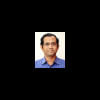
Khondaker Golam Moazzem
Dr Khondaker Golam Moazzem is the research director at Centre for Policy Dialogue (CPD).
Dr Khondaker Golam Moazzem is the research director at Centre for Policy Dialogue (CPD).
The sector has faced prolonged financial losses, rising public debt, and increasing fiscal burdens.
Governments tend to focus on immediate needs, but we also need to ensure that long-term poverty reduction efforts are being developed parallelly.
In late November 2023, the Ministry of Power, Energy, and Mineral Resources unveiled the IEPMP.
Recent observations reveal a concerning trend of underfunding in renewable energy projects.
Through advanced coal-intensive technologies, the government is trying to keep coal alive and further expand the domestic use of imported LNG.
The energy and power sector of Bangladesh can be said to have entered its third phase of development.
The weak financial state of the BPDB is partly due to the high per unit price of electricity
A set of parallel initiatives need to be undertaken targeting the structural weaknesses of the gas sector and power sector development to ensure energy transition.
The second wave of the Covid-19 pandemic hit Bangladesh in early March this year -- almost exactly a year after the initial wave reached the country’s shores.
John Kerry, the special presidential envoy for climate of the United States, is coming to Dhaka tomorrow. Though his visit will be of short duration, it has long and important implications for Bangladesh’s effort to address the climate vulnerabilities and seek support for sustainable solutions at global levels.
The tragic accident of Tazreen Fashions—a garment factory in Bangladesh—that took place on November 24 in 2012 was a major industrial accident in the global apparel value chain.
The government closed down 25 jute mills operated under the Bangladesh Jute Mills Corporation (BJMC) on July 1. It was one of the difficult political decisions taken by the ruling party since it formed the government in 2009. Such a decision hints at the major political shift of the ruling party – from promoting state-owned enterprise development towards private sector led enterprise development.
The resilience of the domestic agriculture sector mainly of the crop sector appears to be in a weak state. Without proper policy intervention the pressure on the agriculture sector would increase further and would cause a number of challenges on food security for a large section of people in the coming months.
The budget for fiscal 2020-21 is said to be one of the most challenging financial bills in Bangladesh’s recent history.